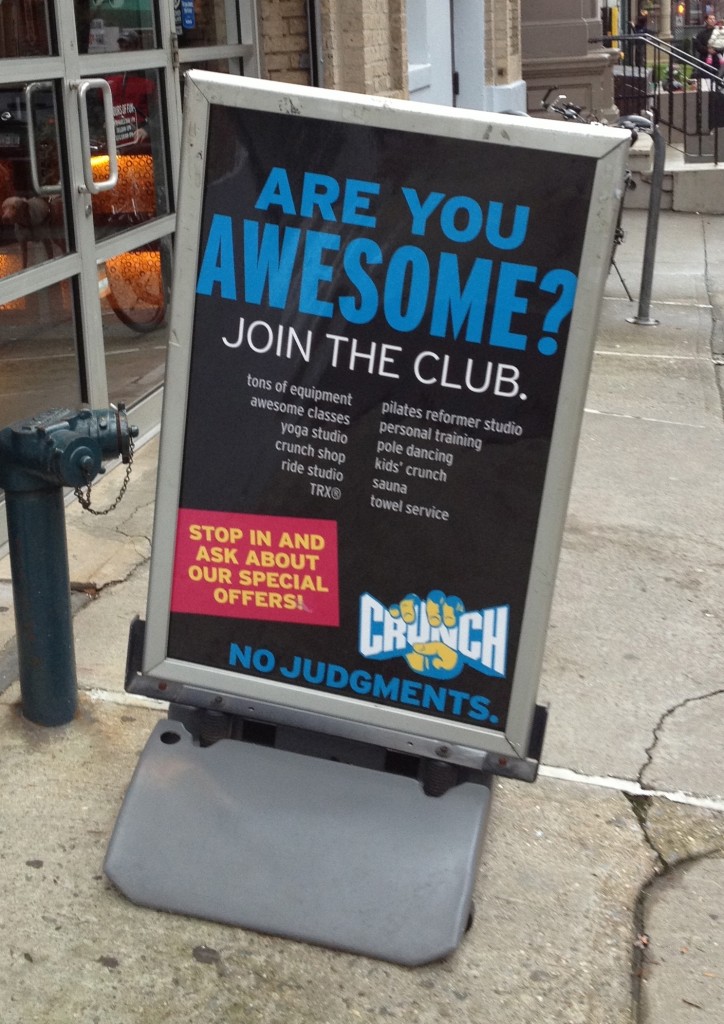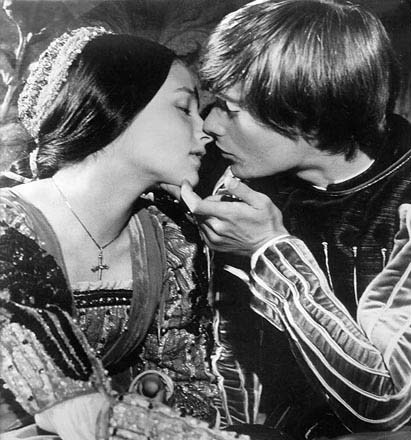
From amazon to Ziploc, Google to Yahoo!, there’s a host of memorable and marketable brand names that both color our daily language and lord over our common nouns like rock-stars with snappy stage-names. Designed specifically to be ‘sticky’, alluring, unique, easily pronounced and remembered, and especially suited to the product or brand they represent, the names themselves tend ironically to be fairly homogenous in their etymologies, usually falling into one of five basic brand-naming-formula categories: 1) the name (usually surname) of the brand founder(s), 2) an acronym, 3) a portmanteau, 4) one or more meaningful existing proper names (or even common nouns) symbolic of the product in question, and 5) a nickname or invented word symbolic of or peculiar to the brand or those that created it. (To read more about portmanteaux, see an earlier Glossophilia post: https://glossophilia.org/?p=1355; and here is Glossophilia’s exploration of acronyms: https://glossophilia.org/?p=1342.)
Setting aside those brand names — such as McDonald’s, Levi’s, and FAO Schwarz — whose namesakes are simply founders’ names and therefore which need no further explanation, let’s look at some famous examples of brands with crafty or creative monikers whose origins aren’t so obvious. Once the codes are cracked, it’s easy to see in which of the categories above the brand names evolved — and succeeded. Thanks to Wikipedia for many of these entries — some verbatim and some parsed.
Aflac (insurance company):
Acronym: the initial letters of the company’s original (and long-winded) name: American Family Life Assurance Company of Columbus
Aldi (grocery store):
Portmanteau: Albrecht (name of the founders) and discount
amazon.com (online general retailer):
Named after the South American river, which is the world’s second-longest and the largest in terms of waterflow
Amoco (oil company):
Portmanteau: American Oil Company
Amstrad (audio equipment):
Portmanteau: its founder’s name: Alan Michael Sugar Trading
AOL (online service provider):
Quasi-acronym: America OnLine
Apple (computers):
Named after the fruit: because it was the favorite fruit of co-founder Steve Jobs, and/or because he had worked at an apple orchard
Coca-Cola (carbonated drink):
Named in 1885 for its two supposedly medicinal ingredients: extract of coca leaves (from which was derived the cocaine in the original recipe) and caffeine, from the kola nut. (The “k” of kola was replaced by a “c” to make the name more memorable and marketable). See also Pepsi-Cola below.
Duane Reade (pharmacy – and more recently grocery – retail chain):
Named after Duane and Reade Streets in lower Manhattan, where the chain’s first warehouse was located
eBay (online auction house):
Invented word. Ebay started life as AuctionWeb. Its founder, Pierre Omidyar, had already formed a web consulting firm called Echo Bay Technology Group. “It just sounded cool”, according to Omidyar. However, a gold-mining company called Echo Bay Mines Ltd had already taken the URL EchoBay.com, so Omidyar registered his second choice for a name, eBay.com: thus AuctionWeb became eBay.
Esso (oil company):
Quasi-acronym: The pronunciation of the initials of Standard Oil of New Jersey (SO = Esso)
FedEx (express courier):
Portmanteau: Federal Express Corporation, the company’s original name
Fiat (automobiles):
Acronym: Fabbrica Italiana Automobili Torino (Italian Automobile Factory of Turin)
Finnair (airline):
Portmanteau: Finland and air
Google (search engine):
Invented word: An accidental misspelling of the word googol (the name of the number that has a one followed by 100 zeros); chosen to signify the vast quantity of results/information to be provided by the search engine
IKEA (home and furniture retailer):
Acronym: the first letters of the Swedish founder Ingvar Kamprad’s name plus the first letters of the names of the property and village in which he grew up: Elmtaryd and Agunnaryd
Kinko’s (print and reproduction service):
From a nickname. At college, the company’s founder, Paul Orfalea, was called Kinko because of his curly red hair
Kleenex (facial tissues):
An invented word. In the early 1920s, Kimberly-Clark, a paper manufacturer, developed its first consumer product, Kotex, a feminine hygiene product made of creped wadding; unfortunately it didn’t fare well in the marketplace when first introduced. Seeking to find other ways to use its large supply of creped wadding, the company’s scientists developed a softer crepe and from this the idea of Kleenex facial tissue was born. The Kleenex tissue was envisioned as a disposable cleansing tissue to clean away cosmetics, and was marketed by the same team that developed the Kotex pad. The name Kleenex was probably a combination of the word “cleansing” (or “clean”) with the capital “K” and the “ex” taken from Kotex.
Kodak (camera and photographic goods):
An invented word. Coined by founder George Eastman, who favored the letter ‘k’ (thinking it strong and incisive), he tried out various new words starting and ending with ‘k’. He saw three advantages in Kodak: It had the merits of a trademark word, it would not be mis-pronounced, and it did not resemble anything in the art. A common misconception that the name is onomatopoeic, sounding like the shutter of a camera.
Lego (toy bricks and construction tools):
Portmanteau (from Danish words): Ole Kirk Christiansen, a Danish carpenter, began making wooden toys in 1932. Two years later, his burgeoning company was named “Lego”, from the Danish phrase leg godt, meaning “play well”
Mattel (toy company):
Portmanteau: founders’ names Harold “Matt” Matson and Elliot Handler
Mitsubishi (automobiles):
Portmanteau: Japanese words mitsu, meaning three, and hishi (with the ‘h’ changed to a ‘b’) meaning diamond (as in the shape, not the gem). Hence the three-diamond logo.
Nabisco (biscuits/cookies):
Portmanteau: its original name, the National Biscuit Company
Nike (sports shoes and apparel):
Named after the Greek goddess of victory
Pepsi (carbonated drink):
(Originally Pepsi Cola): Named after two of its ingredients: the digestive enzyme pepsin and kola nuts.
PG Tips (tea):
Invented name. Originally Pre-Gest-Tee, the tea’s name implied that it could be drunk prior to eating food, as a digestive aid. Grocers and salesmen abbreviated it to PG. Once labeling tea as a digestive aid was outlawed in the ’40s, the PG name was officially adopted. The company later added “Tips”, referring to the fact that only the tips (the top two leaves and bud) of the tea plant are used in the blend
Pixar (animation studio):
Portmanteau: pixel and the co-founder’s name, Alvy Ray Smith
Qantas (airline):
Acronym: its original name, Queensland and Northern Territory Aerial Services
Reebok (sports shoes and apparel):
Named after an African antelope (an alternative spelling is “rehbok”)
Samsonite (luggage):
Named after the Biblical character Samson, who was renowned for his strength
Skype (online communication provider):
Quasi-portmanteau: the original idea for the name was Sky–Peer-to-Peer, which became Skyper, then Skype
Sony (record label and audio equipment):
From the Latin word ‘sonus’ meaning sound
Starbucks (coffee retailer/house chain):
Named after Starbuck, a character in Herman Melville’s novel Moby-Dick; also derived from Starbo, which was a mining camp north of Seattle when the coffee shop/chain was founded in that city
Tesco (retailer):
Acronym/portmanteau: founder Jack Cohen, a London market green-grocer, received a large shipment of tea from T. E. Stockwell. He named his new company using the first three letters of the supplier’s name and the first two letters of his surname
Verizon (phone provider):
Portmanteau: veritas (Latin for truth) and horizon
Virgin (record retailer/label, airline, travel company):
Named after the existing word. Founder Richard Branson, while still at school, started a magazine out of which grew an off-shoot business selling records by mail order; according to Branson, “one of the girls suggested: ‘What about Virgin? We’re complete virgins at business.'”
Twitter (social media channel):
Named after an existing word: twitter. Co-founder Jack Dorsey explained: “We were trying to name it, and mobile was a big aspect of the product early on … We liked the SMS aspect, and how you could update from anywhere and receive from anywhere. We wanted to capture that in the name — we wanted to capture that feeling: the physical sensation that you’re buzzing your friend’s pocket. It’s like buzzing all over the world. So we did a bunch of name-storming, and we came up with the word “twitch,” because the phone kind of vibrates when it moves. But “twitch” is not a good product name because it doesn’t bring up the right imagery. So we looked in the dictionary for words around it, and we came across the word “twitter,” and it was just perfect. The definition was “a short burst of inconsequential information,” and “chirps from birds.” And that’s exactly what the product was.”
Yahoo! (service provider):
Named after a made-up word, yahoo, invented by Jonathan Swift, which he used in his book Gulliver’s Travels; it describes someone who is repulsive in appearance and barely human, which Yahoo!’s founders, David Filo and Jerry Yang, jokingly considered themselves to be.
Ziploc (storage bags):
Presumably a form of portmanteau or compound word combining the first part of the word zipper and lock without the “k” (with the zippered bag locking in flavor and freshness)




















